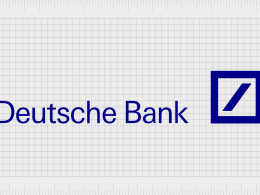Emerging Markets Diary (August 16, 2010)
Strengths
- China’s exports rose 38.1 percent from a year ago to a record of $145.5 billion in July as economic fears in Europe and the U.S. failed to reach China. The higher-than-expected rise contributed to the $28.7 billion trade surplus.
- China’s Ministry of Finance announced that total healthcare budget will grow 14 percent from the previous year in 2010 to $65.3 billion. The figure rose 9 percent in 2009.
- Thailand’s consumer confidence increased for a third consecutive month to 71.4 in July.
- Hong Kong’s GDP expanded by a higher-than-expected 6.5 percent during the second quarter from a year earlier, driven by robust re-exports of Chinese goods, strong business investment and rising Chinese tourists.
- Brazilian toll road operator CCR (Companhia de Concessoes Rodoviarias) reported strong results with EBITDA (earnings before interest, taxes, depreciation and amortization) rising 19 percent year-over-year. Traffic grew 12 percent with the rebound of economy.
- The mending of relations between Colombia and Venezuela should be well received by market participants. The two countries are closely linked economically despite differences in political paradigms.
- Chilean airline LAN posted a 15 percent increase in traffic in June.
- Industrial Production in Mexico grew by 8.4 percent in June, led by a pick-up in manufacturing (up 15.2 percent) and mining (up 4.9 percent). Auto exports to the U.S. were the main driver of the pick up in manufacturing activity. Economists expect a 4 percent growth in GDP this year.
- Isbank’s net profit in the first half grew by 31 percent as Turkish consumers took advantage of low borrowing rates. Despite the increase, we expect a reduction in net interest margins for Isbank and all Turkish banks this year due to repricing of assets and liabilities. However, higher volume of lending should still lead to a growth in net interest income.
- Traffic on Turkish airlines grew by 20 percent during the first half of the year. More importantly, the load factor—a measure of how much of an airline’s passenger carrying capacity is used—rose to 73.4 percent.
Weaknesses
- China’s imports rose by a much lower-than-expected 22.7 percent in July from a year earlier, as both processing imports and commodity imports decelerated. Weaker demand is also reflected in lower than estimated year-over- year growth in industrial production at 13.4 percent and retail sales at 17.9 percent. The RMB 533 billion new bank lending and 17.6 percent growth in M2 money supply also trailed expectations.
- South Korea’s unemployment rate rose for a third-straight month to 3.7 percent in July, as the government withdrew some of the countercyclical policies to support job creation after the global recession started.
- Malaysia’s industrial production expanded by a slower-than-expected 9.4 percent in June, the fourth-straight drop in year-over-year growth. This is consistent with decelerating exports driven by European debt crisis and a slowing U.S. recovery.
- Singapore’s retail sales declined 4.9 percent year-over-year in June as car sales continued to contract and growth of spending on small ticket items slowed as well.
- The uncertainty for the three Mexican airport groups intensified with the bankruptcy of Mexicana, the largest airline in Mexico. In addition, Macquarie’s sale of its 16 percent stake in ASUR put the stock under pressure the last few days. This was exacerbated by ASUR’s weight reduction in Mexico’s Bolsa Index.
Opportunities
- According to Credit Suisse, Chinese households’ grey income (income unreported to the state) added up to 9.3 trillion yuan ($1.4 trillion) as of 2008, or around 30 percent of GDP. Around 81.3 percent of this unreported pool belonging to the top 20 percent of earning households.
 With harsh domestic policies on real estate and substantial uncertainties in the stock market, Macau’s gaming sector could continue to benefit from mainland Chinese liquidity as a result of growing income, both reported and unreported.
With harsh domestic policies on real estate and substantial uncertainties in the stock market, Macau’s gaming sector could continue to benefit from mainland Chinese liquidity as a result of growing income, both reported and unreported.- While it is still unclear if the proposed transaction between Vimpelcom and Orascom Telecom will take place, the combined company would be one of the largest in the European emerging markets universe. However, various regulatory bodies and minorities’ interests would have to be resolved before benefits of consolidation would kick in.
- Banco do Brasil, Bradesco and Banco Espirito Santo (Portugal) signed a non-binding memorandum of understanding to create a holding company to operate in Africa. The proposed entity would be a vehicle for future acquisition in Africa.
Threats
- Hong Kong’s newly announced property tightening measures, such as increasing land supply, raising the minimum down payment to 40 percent from 30 percent for higher-end and investment properties, and asking banks to conduct stress tests, may weigh on Hong Kong real estate companies.
- Although the presidential election in Mexico is still two years away, controversial left-wing candidate Mr. Lopez Obrador, who narrowly lost the last election, has already launched his campaign.













